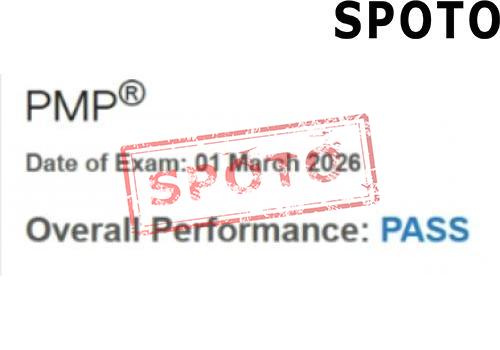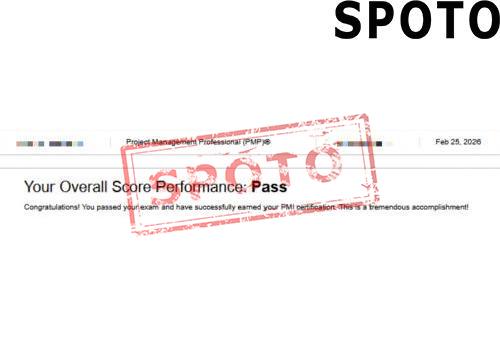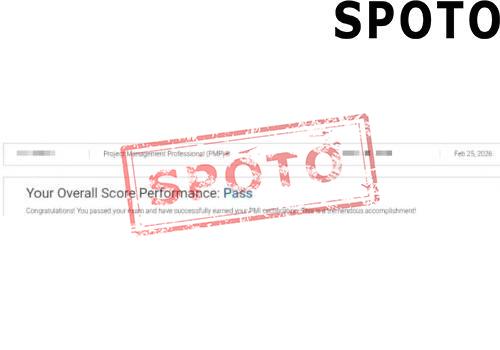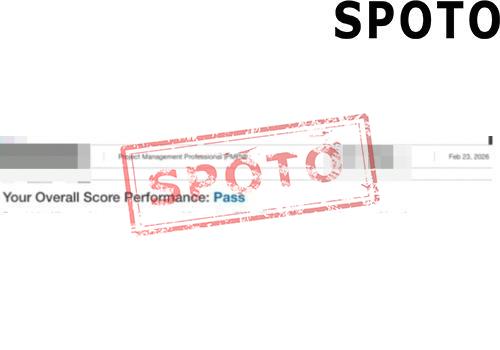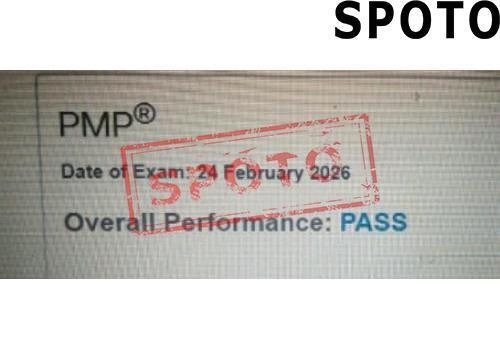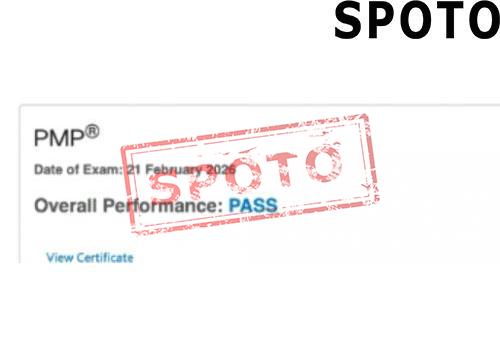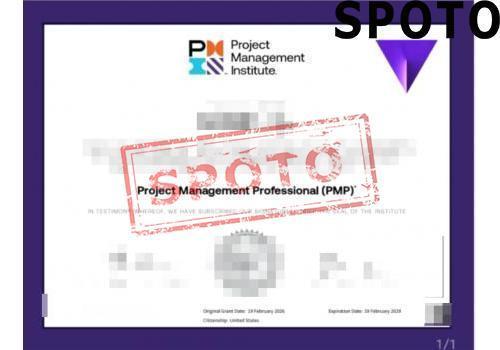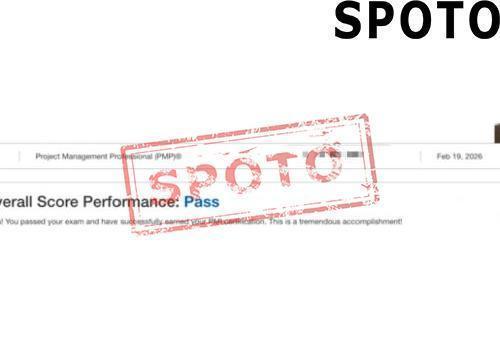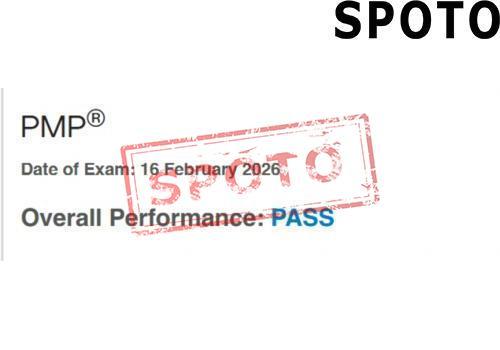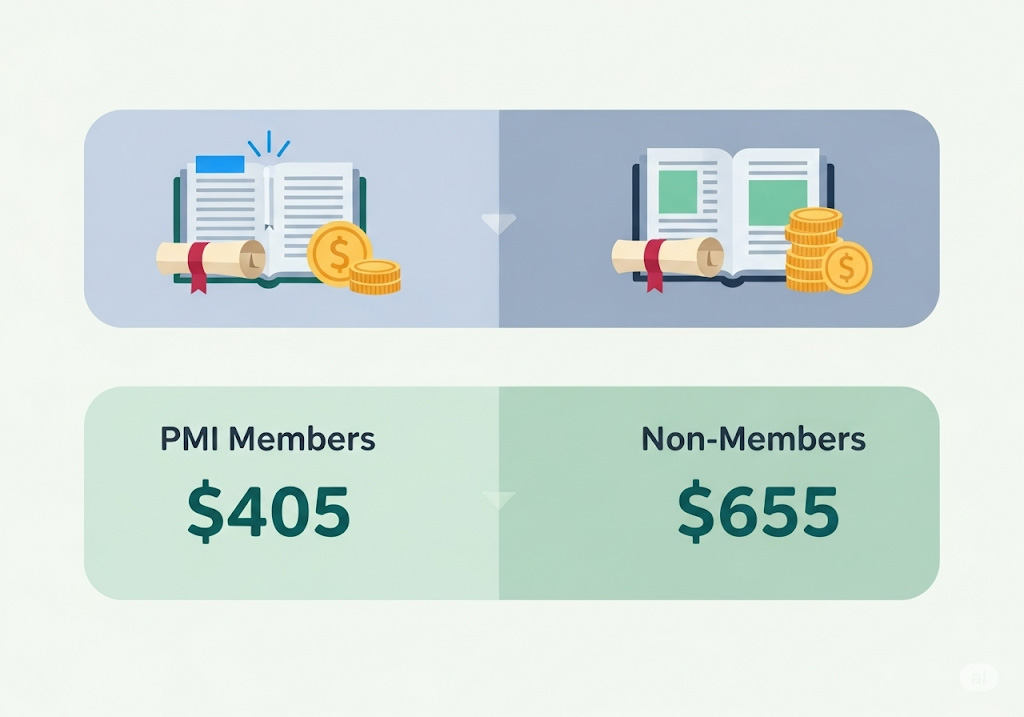
Table of Contents
The Project Management Professional (PMP)® certification stands as a globally recognized standard for project managers, demonstrating mastery of the people, processes, and business priorities critical to successful project delivery.1 For professionals considering this credential, the financial investment is a primary concern. The question of the exam's cost, however, is not a simple one, as the total financial outlay extends far beyond the singular price of the examination. It is a multi-faceted sum of fees, training expenses, and study materials that collectively represent a significant career investment.
The core cost of the PMP certification is divided into a tiered exam fee based on whether a candidate is a member of the Project Management Institute (PMI). The initial exam fee is $405 for PMI members and $655 for non-members. This financial difference is a central consideration, as is the cost of mandatory project management training, which can range from an inexpensive e-learning course to a costly, immersive bootcamp. The true total investment, therefore, is highly personalized and depends on the preparation path a candidate chooses.
This report will transition from a high-level overview of the PMP's financial requirements into a detailed, component-by-component breakdown of every potential cost. It will analyze the fees associated with the examination and retakes, evaluate the varied expenses for education and study materials, and perform a comprehensive cost-benefit analysis of PMI membership. Finally, it will present a strong argument for the PMP as a strategic, high-return investment, justifying the initial financial commitment with concrete data on salary and career growth.
The cost of PMP certification is not a simple expense but a strategic, high-ROI investment, as the demonstrable return in career advancement and increased earning potential consistently outweighs the initial financial outlay.
What Are the Core PMP Exam Fees?
The most direct and unavoidable cost of the PMP certification is the exam fee itself. The Project Management Institute, the body that administers the exam, employs a tiered pricing structure that heavily favors its members. This pricing model is a critical element of the certification's financial landscape and one of the first decisions a candidate must make. The cost of the initial exam is $405 for those who hold a PMI membership and a substantially higher $655 for non-members.1 This price difference is not merely a small discount; it is a fundamental aspect of PMI's strategy to incentivize membership.
In the unfortunate event of a failed attempt, a candidate must also consider the cost of retaking the exam. The retake fee is also tiered, with PMI members paying $275 and non-members facing a cost of $375 per attempt.3 This re-examination policy allows for up to three attempts within a one-year eligibility window, with a mandatory 30-day waiting period between each failed attempt.3 This policy underscores the importance of adequate preparation. A single failed attempt introduces a significant financial burden of at least $275 to a candidate's total cost, and a second adds another layer of expense, emphasizing that the most cost-effective path is a first-time pass. The decision to invest in quality preparation is therefore not just about learning; it's a financial calculation to mitigate the risk of accumulating additional fees.
The table below provides a clear comparison of the core exam fees.
| Fee Type | PMI Member Cost | Non-Member Cost |
| Initial Exam | $405 | $655 |
| First Retake | $275 | $375 |
| Second Retake | $275 | $375 |
The primary financial costs of PMP certification are the exam fees, and a PMI membership offers a clear and immediate financial advantage.
How Much Do PMP Prep and Training Materials Cost?
The financial commitment to PMP certification extends beyond the exam fee to the mandatory educational component. The Project Management Institute requires that all candidates complete 35 hours of project management education or training before they are eligible to apply for the exam.1 This prerequisite is an essential part of the certification journey and one of the most variable cost factors, with options ranging from highly affordable self-study to premium, instructor-led courses.
The most budget-friendly options are typically self-paced e-learning courses. Some providers offer comprehensive packages that satisfy the 35-hour requirement for as little as $30 5 or approximately $350 for a full year of access to an online program that includes an exam simulator and thousands of practice questions.6 These e-learning platforms are a popular choice for self-motivated individuals who can study independently and at their own pace. A candidate can also fulfill the education requirement by enrolling in a PMP bootcamp or live, instructor-led course. These programs offer a more structured learning environment and often come with a higher price tag. Costs can range from $995 to $1,995 for online courses 7 and can exceed $2,995 for intensive virtual bootcamps.9 These higher-priced options often include a guaranteed-to-run schedule, direct access to certified instructors, and extensive study materials.
The decision to choose a particular preparation path involves more than just a preference for learning style; it is a form of financial risk management. As a candidate, spending more on a reputable, structured course can be a strategic move to secure a first-time pass. A candidate who opts for a more expensive but comprehensive training program, such as one costing $995 7, may be more likely to pass on their first attempt, thereby avoiding a $375 retake fee and the associated stress and time. In this way, a seemingly larger upfront investment in preparation can ultimately result in a lower total cost of certification. The choice to invest in quality preparation is not about overpaying but about making a calculated decision to save money and time in the long run.
The cost of PMP preparation is the most flexible component of the total investment, and choosing the right study method can significantly increase the chances of a first-time pass.
Is a PMI Membership Worth the Cost?
A thorough analysis of the total cost of PMP certification must consider the value of a Project Management Institute membership. For many candidates, joining PMI is a financially sound decision that delivers benefits far beyond a simple discount on the exam. The first-year PMI membership fee for a professional is $154 plus a one-time $10 application fee, for a total of $164.10 While this is an additional expense, the savings on the exam fee alone typically offset this initial cost.
When combining the first-year membership fee with the member-exclusive exam price, the total cost for a member to take the PMP exam is $569 ($164 for membership + $405 for the exam).1 This represents a direct savings of $86 compared to the non-member exam fee of $655.1 This financial advantage is even more pronounced if a candidate needs to retake the exam, as members pay $275 per retake compared to the non-member fee of $375.3
The value of a PMI membership, however, is not limited to these immediate savings. It is a long-term investment that provides continuous access to a vast professional ecosystem. Members receive a complimentary digital copy of the Project Management Body of Knowledge (PMBOK®) Guide, which is a foundational resource for the PMP exam.11 They also gain access to a global network of over 700,000 peers, local chapters, and exclusive resources that support career progression and continuing education.12 This access to professional development units (PDUs) and community support is vital for maintaining the PMP credential and staying current in the field. Furthermore, the membership offers substantial long-term savings on the PMP renewal fee, which is $60 for members versus $150 for non-members every three years.11 The decision to join PMI is therefore a strategic financial and professional decision that provides both immediate savings and long-term value, making it a worthwhile investment.
The table below provides a comprehensive comparison of the total PMP certification cost for a candidate who chooses the PMI member path versus the non-member path. It synthesizes the data points discussed and offers a clear view of the overall financial outlay.
| Cost Component | PMI Member Path | Non-Member Path |
| PMI Membership (First Year) | $164 | $0 |
| Initial Exam Fee | $405 | $655 |
| Total Initial Cost | $569 | $655 |
| Retake Fee (if needed) | $275 | $375 |
| 3-Year Renewal Fee | $60 | $150 |
PMI membership is a strategic financial and professional decision that provides both immediate savings and long-term value, making it a worthwhile investment.
What is the Financial ROI of PMP Certification?
The most compelling argument for the PMP certification is not the cost of the exam but the significant return on investment (ROI) it can provide over a professional's career. The PMP credential is a gateway to increased earning potential, career advancement, and professional credibility.
Multiple industry studies confirm a substantial salary premium for PMP-certified professionals. The Project Management Institute’s "Earning Power: Project Management Salary Survey" found that PMP-certified individuals report a median salary that is 33% higher than their non-certified counterparts across 21 countries.14 In the United States, this translates to a median salary increase of $25,000 for those with the PMP.16 This data suggests that the PMP certification is not just a badge but a quantifiable asset that directly contributes to a higher salary.
Beyond salary, the PMP certification can unlock a path to more senior and lucrative roles within an organization. A PMP credential can position a professional for high-paying positions such as Project Executive, PMO Lead, or Cybersecurity Project Manager, which often command six-figure salaries.12 These are not entry-level roles; they are positions of leadership and strategic importance that require a proven track record of managing complex projects. The PMP credential serves as a validation of this experience, signaling to employers that a candidate possesses the skills and knowledge necessary to succeed in a leadership capacity.13
While some may argue that PMP certification has become a mere baseline requirement for senior project management roles, this perspective only reinforces its value. The PMP acts as a critical filter for recruiters and hiring managers, allowing a candidate to be considered for a higher-paying bracket where salaries are inherently greater due to the complexity and responsibility of the work. Without the PMP, a candidate might be overlooked for these opportunities, regardless of their experience. Thus, the PMP is not just a direct cause of a salary increase but a key that unlocks the door to a higher earning bracket. It demonstrates a commitment to the profession and instills confidence in employers and peers, serving as an asset that contributes to a professional's total value.
The PMP is a financially savvy career move that demonstrates a commitment to the profession and leads to increased earning potential and enhanced career opportunities.
Conclusion
The PMP certification is a significant, multi-faceted investment that extends beyond a singular exam fee. A comprehensive financial analysis reveals that the total cost for a candidate can range from as little as a few hundred dollars for a self-paced e-learning path to several thousand for a premium, instructor-led bootcamp. The single most effective way to reduce the overall financial outlay is to become a member of the Project Management Institute, as the savings on the initial exam fee alone typically exceed the first-year membership cost. This decision also provides access to a wealth of resources and a professional network that are invaluable for career advancement and recertification.
Ultimately, the PMP certification is not a simple expense to be minimized but a strategic investment in a professional’s career. The data overwhelmingly supports this view, with certified professionals reporting a median salary that is a substantial 33% higher than their non-certified counterparts. The PMP is a credential that validates a candidate's skills and experience, positioning them for higher-paying, senior-level roles and proving their dedication to the craft of project management. The financial and intangible returns on this investment consistently and demonstrably outweigh the initial costs, making the PMP a wise and essential step for any serious project management professional.
External links recomendation
-
Project Management Institute (PMI) Official Website: This is the definitive source for the most current PMP certification requirements, exam fees, and official study materials.
-
Pearson VUE: As the official testing partner for PMP exams, this site is used to schedule, reschedule, and manage all exam appointments.
-
Reputable PMP Training Providers: Authoritative training partners such as Project Management Academy, Simplilearn, or university programs can be consulted for course details, pricing, and schedules.
-
PMI's "Earning Power: Project Management Salary Survey": This document provides the foundational salary data that underpins the PMP's financial value, offering a transparent view of the professional landscape.
Reference link:
